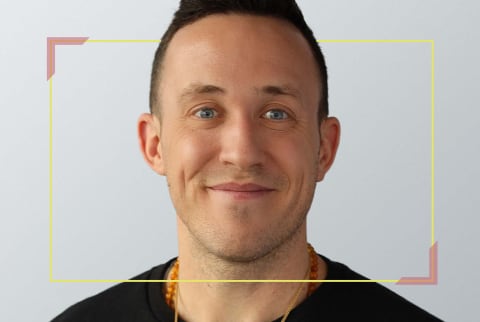I’ve suffered from chronic gut pain, essentially since birth. At times, it would get so bad that I would begin to question if I was facing my own mortality—it felt like there was no end to the pain. I experienced this roller coaster of symptoms and emotions for 31 years before I finally found relief. When I was 12, I watched my mother get sober. In my family, there are a lot of individuals with substance use disorders, and it was a really impactful moment in my life to see someone navigate their mental health and become the person I always hoped they could be. Observing my mom’s journey was incredibly inspiring, and as a teenager, it propelled me on my own path exploring the mental health side of my physical symptoms. Still, while I was discovering just about every mental health modality I could, my chronic pain symptoms continued to get worse and worse. Doctors gave me every test under the sun, but no one could provide answers. The lack of a diagnosis started to lead me down a dark spiral. I was so diligent about trying to alleviate my symptoms, and I was desperate for clarity about my experience. At one point, I received a potential diagnosis of Crohn’s. I immersed myself in information about the disease, trying to learn everything I could, only to find out it was actually a misdiagnosis. I was crushed. As the years went on, the pain progressed. It would come on like a stomachache, but then within 30 minutes, it would escalate to an overwhelming, all-consuming pain. I lived a 10-minute walk from the emergency room, and it got to the point where I would end up there three or four nights a week. I would show up writhing in pain, and they would just put me on a morphine drip for some relief. Fortunately, I had so much awareness around mental health and addiction—but I could understand how people with chronic pain became dependent on certain medications. It was in these dark moments, whenever the pain would get really bad, I would begin to wonder if I wasn’t supposed to be here. But one day, as I was in the emergency room yet again, I looked at my wife and said, “I need to do something different.” My plan? Go to South America to try ayahuasca. My wife looked at me, confused, and asked, “Let me get this straight, your plan for curing your severe pain is to go to the jungle and drink something that makes you throw up?” But she knew how much I was suffering, and she knew how diligently I was working toward a solution. So I booked a flight while I was still in the emergency room, went home, packed my bags, and flew south from my home in Vancouver. During the ceremonies, I didn’t have any big cosmic visions or even much purging. But in the final ceremony, I found myself really accepting my pain. I acknowledged that maybe there was nothing to fix, and maybe this was inherently what my human experience was meant to be. This was a cathartic moment. I’d spent my entire life believing there was something wrong with me. At that point of acceptance, I began to feel a shift happen. Before that, I couldn’t seem to bridge the mental and physical parts of my suffering. But afterward, I felt a sense of alleviating that suffering at a very deep level. I created pathways for powerful acceptance and compassion for myself. I think the other big part of my journey was the community connection I experienced—the feeling of being part of something bigger than myself. After my own experience, I felt compelled to help others, as well. I acknowledged that not everyone has the ability to hop on a plane and spend a week in the jungle. So I began to question: How can we make these therapies more accessible in our own backyards? And how can we create fundamental change in the way we approach mental health so people have a system of support along their journey? That’s where the idea for Numinus came from—my company, which offers a holistic, integrated approach to healing by using the latest advances in psychedelic medicine combined with evidence-based care. For anyone else experiencing challenges like I went through, I encourage reaching out and finding your community. There are so many people dealing with similar struggles. While the use of psychedelics was maybe the catalyst moment for me, it was really the people I was fortunate enough to find that really made a lasting change in my life. I wouldn’t be here today without the support of that strong community.



